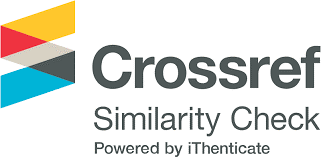Induction Motor Control Didactic Set-up Using Sensorless And Sliding Mode Dtc Strategy
DOI:
https://doi.org/10.18618/REP.2008.4.291299Keywords:
induction motor, sensorless, sliding mode, torque control, simulation, experimental systemAbstract
A three-phase induction motor direct torque control laboratory set-up for simulation and experimental activities is presented in this paper. It includes sliding-mode controllers and uses a sensorless method to estimate rotor speed. The objective of this setup is to present to the students a simulation tool based on Matlab SimPowerSystems toolbox with the possibility to check simulation results against a DSP based experimental system. The set-up provides to the electrical engineering students an excellent learning tool for nonlinear control studies using as example the variable speed three-phase induction motor control. Linear control systems are extensively studied in electrical and computer engineering theoretical and experimental sessions while non-linear control systems aren’t.
Downloads
References
I. Takahashi and T. Noguchi, "A new quick response and high efficiency control strategy of an induction motor", IEEE Transactions on Industry Applications, vol. 22, pp. 820-827, 1986.https://doi.org/10.1109/TIA.1986.4504799 DOI: https://doi.org/10.1109/TIA.1986.4504799
M. Depenbrock, "Direct self-control (DSC) of inverter-fed induction machine", IEEE Transactions on Power Electronics, vol. 3, no. 4, pp. 420-429, 1988. https://doi.org/10.1109/63.17963 DOI: https://doi.org/10.1109/63.17963
J. Hung, W. Gao, and J. Hung, "Variable structure control: a survey", IEEE Transactions on Industrial Electronics, vol. 40, no. 1, pp. 2-22, 1993. https://doi.org/10.1109/41.184817 DOI: https://doi.org/10.1109/41.184817
V. Utkin, J. Guldner, and J. Shi, Sliding Mode Control in Electromechanical Systems, CRC Press, 1999, ISBN: 0748401164.
C. Schauder, "Adaptive speed identification for vector control of induction motors without rotational transducers", IEEE Transactions on Industry Applications, vol. 28, no. 5, pp. 1054-1061, 1992. https://doi.org/10.1109/28.158829 DOI: https://doi.org/10.1109/28.158829
C. Lascu, I. Boldea, and F. Blaabjerg, "A modified direct torque control for induction motor sensorless", IEEE Transactions on Industry Applications, vol. 36, no. 1, pp. 122-130, 2000. https://doi.org/10.1109/28.821806 DOI: https://doi.org/10.1109/28.821806
C. Lascu, I. Boldea, and F. Blaabjerg, "Direct torque control of sensorless induction motor drives: a sliding-mode approach", IEEE Transactions on Industry Applications, vol. 40, no. 2, pp. 582-590, 2004. https://doi.org/10.1109/TIA.2004.824441 DOI: https://doi.org/10.1109/TIA.2004.824441
P. Vas, Sensorless Vector and Direct Torque Control, Oxford University Press, 1998, ISBN: 0198564651. https://doi.org/10.1093/oso/9780198564652.001.0001 DOI: https://doi.org/10.1093/oso/9780198564652.001.0001
G. Buja and M. Kazmierkowski, "Direct torque control of PWM inverter-fed AC motors - a survey", IEEE Transactions on Industrial Electronics, vol. 51, no. 4, pp. 744-757, 2004. https://doi.org/10.1109/TIE.2004.831717 DOI: https://doi.org/10.1109/TIE.2004.831717
P. K. Kovacs, Transient Phenomena in Electrical Machines, Elsevier, 1984
Y. Xue, X. Xu, T. Habetler, and D. Divan, "A low cost stator flux oriented voltage source variable speed drive", in Conference Record of the 1990 IEEE Industry Applications Society Annual Meeting, vol.1, pp. 410-415, 1990.
M. P. Kazmierkowski, Control in Power Electronics: Selected Problems (Academic Press Series in Engineering). Academic Press, 2002.
P. Jansen, R. Lorenz, and D. Novotny, "Observer-based direct field orientation: analysis and comparison of alternative methods", IEEE Transactions on Industry Applications, vol. 30, no. 4, pp. 945-953, 1994. https://doi.org/10.1109/28.297911 DOI: https://doi.org/10.1109/28.297911
Downloads
Published
How to Cite
Issue
Section
License
Copyright (c) 2008 Eletrônica de Potência

This work is licensed under a Creative Commons Attribution 4.0 International License.















